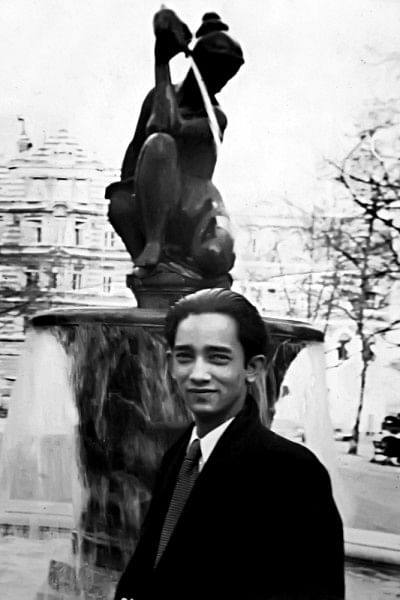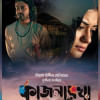Desperately missing his guidance in this era of press bashing

It was my grand privilege to have succeeded our founding editor SM Ali in November 1993. Journalism has undergone dramatic transformation in these last 24 years, regrettably not all for the better. The most significant of these changes has been in the way we do journalism. The emergence of social media and the era of instant information have all changed the profession of journalism in ways that our founding editor could have hardly imagined. Just imagine, there were no computers (except for 10 in the production section), no internet, no online, nothing of the digital platforms and no smartphones.
However, it is not the changes in journalism but the memories and guidance of our founding editor that are the subject of today's piece.
Ali Bhai, as we would lovingly call him regardless of age, always had an elegant presence. He overwhelmed others with his personality but never intimidated them. There was always an easy-going charm about him that made others feel comfortable. There was that sharp humour that many people would miss and misunderstand—stories of which he would recount to us on occasions.
It was our daily routine to meet in the morning around 10:30 and choose the editorial topics for the day's paper. As our discussion would begin he would often take out the editorial that he had already written at home and hand it over to me for getting it ready for printing. I never knew nor did I ever ask why he always used a yellow tinged paper for his writing. The typing would mostly be clean except for a few handwritten corrections and additions which were also very neat.
In the pre-computer days, editors would seldom type their own copies. They would dictate. But SM Ali was a rare exception. I clearly remember marvelling at the discipline of this man who would write as frequently as possible and always do it himself. As he would shut himself in the editor's room, which would be often, one could hear the relentless banging of the typewriter while passing by his room. Even if his door was closed the staff members were always welcome to seek his guidance any time. The shut door was only to indicate he did not want any visitors at that time.
As his deputy it was my privilege to spend time with him whenever he was free or in a talkative mood. One of his severest pieces of advice was "never associate yourself with any organisation howsoever noble." "Even if it is doing very worthwhile work and with the highest level of integrity?" I asked. His reply cleared my mind. "If you are associated with a charity you will never be able to evaluate it with journalistic objectivity as you would be too close to it. More importantly, if you want to praise its work your readers will suspect bias. On the contrary, as an outsider you can be of better service to them with appreciative writings without any fear of bias."
There was another priceless advice that I have tried to follow fully at the risk of appearing aloof or even haughty. He said, "You must divide all your time between the newspaper and your family. If you still have some time left, give it to the newspaper. Even after that if you still have some more time left, give it to the family. But never waste it anywhere else." Attending diplomatic dinners, seminars and talking to interesting people, he would encourage as they were either sources of news or of ideas. He had admonished me from going to social clubs like the Dhaka Club and the Press Club. "You don't have time for that, at least you shouldn't have, except to meet specific people with prior appointments."
The advice I have failed to adhere to much to my regret and I am sure to his disappointment as he looks down on us from his Eternal Abode is this. He insisted that I write every week, and even gave my column its name: the "Third View". I tried to write as regularly as possible but would sometimes falter as I had to run around collecting advertisements for the young and struggling paper. As the finances became critical in later months there would be weeks that I would miss my column. He reprimanded me saying, "As the executive editor you must keep a sharp focus on the revenue but it should never be at the expense of your writing. Your readers will never remember you for how much advertisement you brought to the paper but for what you wrote and what you stood for."
I wonder what Ali Bhai's advice to me would be today as we are going through a period of almost zero tolerance for dissent. How would he guide me in covering a political situation where opposition is practically decimated—much of it due to its own ineptness but also due to severe oppression—and identified more as the "enemy" rather than a competitor for power? How are we to run the paper where any dissenting view is looked upon with suspicion and no opportunity is lost in vilifying anyone remotely critical of the present powers that be?
Every day as we brief our reporters, edit their copies, write our editorials, sift through the articles of our columnists and do our page layout, we try to double guess how this or that item would further increase the scrutiny and pressure we are subjected to. How much more of the restrain we need to practise in a constant nagging thought impeding our independent journalism. How would he have handled the era of self-censorship and blame game? Did he ever face the phenomenon of "fake news" whose origin may not be in the Trump era but much closer to home and whose prevalence may not be as infrequent as many of us would like to believe?
How would Ali Bhai guide us in protecting the reputation of individuals who are mercilessly denigrated without evidence or reason and where innuendos suffice as proof and where what is implied becomes stronger than the loudest response of the victim?
This paper was born with the fall of autocracy. While Ali Bhai wrote our first editorial—"An Independent Voice"—spelling out the policy of the new paper, I wrote the first post—"Dreams Reborn"—enshrining both the dream of this newspaper and that of the energised nation that consisted of democracy, social justice, institution-building and unfettered press.
As we remember our founding editor on the occasion of his birthday, we sorely miss his guidance in these times of global attack on the media and the national constrictions under cyber and digital laws and an overall atmosphere of fear and intimidation in which the media has to operate today.
Mahfuz Anam is editor and publisher of The Daily Star.









Comments